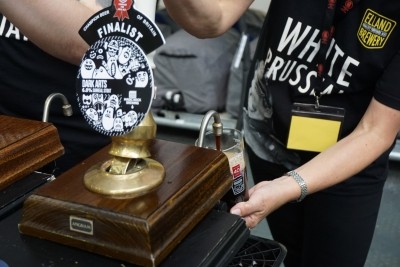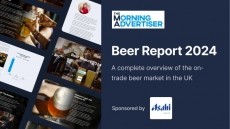CAMRA implements emergency cost-saving measures

Areas set to be hit by the measures include Government lobbying plans to reduce beer tax; the organisation’s What’s Brewing publication will be produced in a digital-only format in October and December; beer festival marketing updates will be put on hold; plans for a report have been put on hold; and membership workshops have also been scrapped.
CAMRA members received an email from chairman Colin Valentine, which has been seen by The Morning Advertiser, which said a “potential shortfall in income” had been identified.
It explained that revenue was likely to be less than the amount forecast at the start of the financial year, and upon which the organisation’s spending plans were based.
It also stressed that the cost savings would aim have a minimum impact on essential campaigning activities and there was no cause for concern.
Robust financial controls
Valentine told members: “As you will know, however, our activities can be affected by many factors, some outside our control.
“For example, growth in membership can be hit by wider economic circumstances and the numbers of people attending our festivals can vary widely – not just depending on how well we run and promote them – but because of the luck we have with the weather or the emergence of competing events.
“CAMRA has robust financial controls and management processes in place and the national executive has undertaken a comprehensive review of the campaign’s finances and activities to address this shortfall.”
CAMRA’s full accounts according to Companies House up to 31 December 2016 stated its deficit after taxation for the year was £122,549 (compared with £137,420 in 2015).
Total reserves decreased to £3,266,872 from £3,392,421 in 2015, which was in line with policy objectives to maintain reserves for emergency campaigns, potential future property acquisition and to withstand adverse economic and operational conditions.
By the end of 2016, CAMRA had nearly 185,000 members, a rise of 5.3% on the previous year.
Income from festivals
In the organisation's report to Companies House the income decrease is primarily blamed on a fall in income from festivals, publishing and other trading income.
The report says that there had been a decrease in gross income from festivals to £9.7m (from £9.8m in 2015). It goes on to say that there had been a drop in net income from festivals from £3m in 2015 to £2.9m last year.
Publishing and other trading income was also reported as dropping to £1.1m, from £1.2m in 2015, partly offset by a rise in subscription income to £2.9m, up from 2015 where it was £2.7m.
Campaign costs were broadly unchanged year-on-year at £1.5m while administration costs rose to £2.1m from £1.8m the previous year, including costs for the organisation's Revitalisation Project and an increase in IT investment.
Income from activities undertaken in the UK, such as festivals, books, merchandise and membership fell from £14,016,249 in 2015 to £13,940,948 in 2016.
However, employment costs rose from £1,624,629 in 2015 to £1,827,984 the following year.









